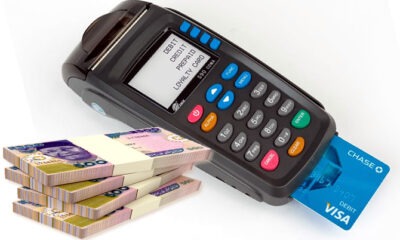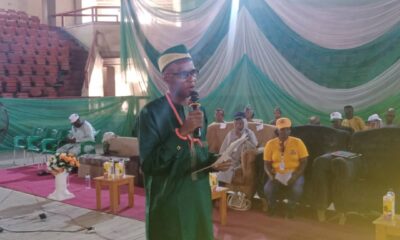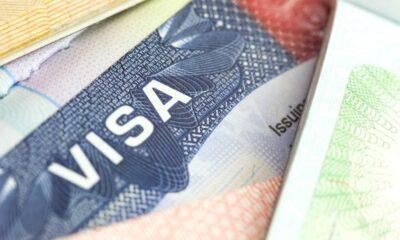Business
Businesses You Can Start With N50,000 Capital
Published
12 months agoon
By
Editor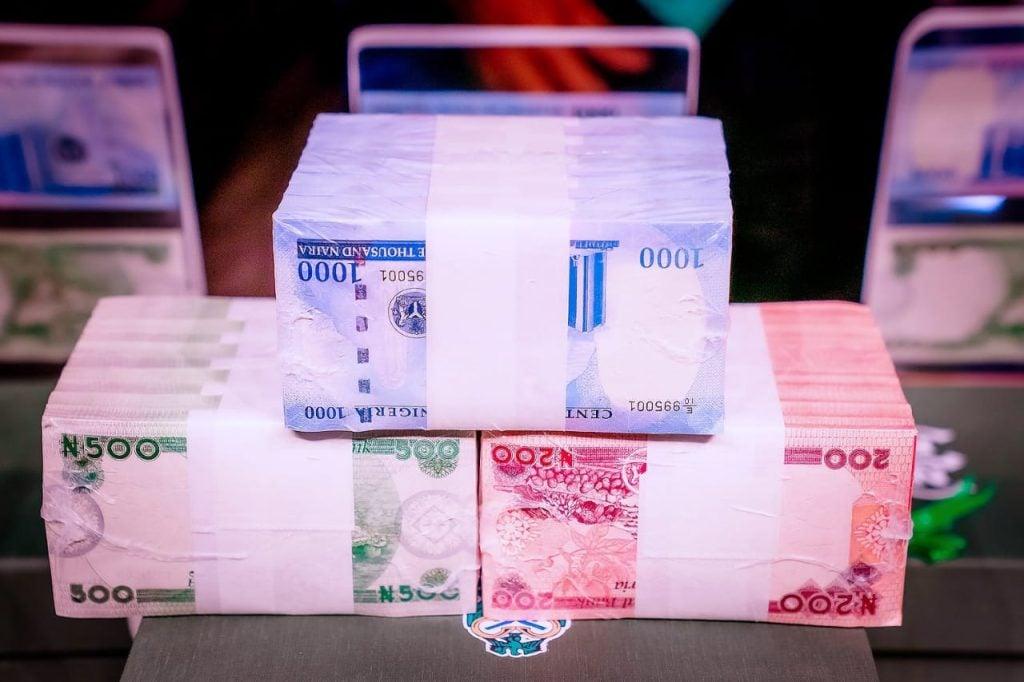
Nigeria boasts of about 41 million micro-businesses and 73,000 small and medium businesses, a survey by the Small and Medium Enterprises Development Agency of Nigeria has shown.
This shows that an average Nigerian is an entrepreneur in one way or the other, and this is because of the unpleasant risk to financial stability, due to poverty, lack of education and insecurity. Regardless, many Nigerians have forged ahead to build a lasting legacy of financial freedom for the generation yet unborn.
However, when individuals are tasked with the gospel of creating passive income, or secondary income source, the usual tilt towards lack of funds as an excuse has shortchanged individuals from breaking the shackles of meagre salaries and financial limitations.
Despite, arguments and reports fueled by the high cost of energy and epileptic power supply, personal finance experts have led conversations on the need to embrace multiple streams of income. While this might sound like a fairytale, it is possible to expand your income base. Of course, by taking baby steps and starting with one business at a time.
Pressed for funds to start? Here are a few small businesses to start with N50,000 and above despite the harsh economic climes of the nation.
Point of Sale business
Point of Sales service is considered as one of the most lucrative side hustles to adopt. Even though, some Nigerians have fully invested their capital and rely on it for primary income, it is still an effective way to earn some extra cash on the side.
READ ALSO: Crude Oil Buyers Should Pay Nigeria In Naira, Not Dollar – Falana
A full-time PoS operator, Taiwo John operating along Lotto, Ofada bus stop told The PUNCH that, “Although the startup capital to venture into PoS business full time will cost about N250,000, if you are doing it as a side hustle with N50,000 to N150,000, you can start. If you are getting two terminals, you will need like N50,000, that’s about N25,000 each.”
According to him, for starters, consistency will play a big role in determining the success of the business.
“This business is about trust, so after getting your accessories for about N25,000 you need to get cash to run the business and make sure you are always available when customers need you. Above all John, states that as a business owner, “you must pay attention to your profit rather than just making sales.”
The Point of Sale business has rapidly spread through the rural areas as it is quite easy to start.
In fact, according to the National Bureau of Statistics, the number of registered PoS operators has grown over the years. In January, due to the cashless policy, Point of Sales transactions grew to N807.16bn which signified a 40.69 per cent year-on-year increase from the N573.72bn transactions that were done in January 2022. This is a clear indicator that the PoS business is lucrative and there is a demand for the service.
READ ALSO: Probe Missing 149m Barrels Of Crude Oil In 2019 Or Face Legal Action, SERAP Tells Buhari
Perfume business
The perfume oil business is another venture to go into. According to a perfume oil wholesaler living in Ketu, “Anyone can start a perfume oil business with as low as N11,000. I started mine about four years ago with just N24,000 and later I reinvested about N34,000 into the business. At the time, I was a retailer but now I am a wholesaler,” Tomisin Oke told The PUNCH.
Speaking on the profit margin recorded on the initial investment, she says that newbies can “Expect to make about 60 per cent to 40 per cent depending on the sales, but your gain cannot be less than 50 per cent half the time.”
Based on findings by The PUNCH, there are numerous wholesale distributor groups for oil perfume business owners.
Reaching out to one of the groups, a distributor explains that oil perfume retailers can start with capital as little as, “N11,000, 15,000 or N21,000. The N15,000 pack comes with 40 bottles of 3ml oils and you can sell for N500 per each. You can sell the 6ml for N800 to N1000 per each. And you can also do the payment on delivery.”
A survey report by Fortune Business Insight revealed that in 2020, the global perfume market was worth $29.8bn. This is largely driven by the demand for cosmetics and beauty. Even better is the fact that this business can be run from home without stress.
Thrifts clothes
The thrift clothing business otherwise known as “Okrika”(second-hand clothes) is considered as one business that favours small capital to start.
Patronised by a majority of Nigerians, this business is considered lucrative and quite easy to manage, all thanks to its affordability for the average Nigerian.
READ ALSO: Why I Switched From Football Career To Music – Burna Boy
Speaking with thrift vendors, our correspondent gathered that there are major factors to consider before taking a deep dive but the business needs a little capital of N20,000 to N50,000 or more depending on the buyer’s pocket.
A wholesale thrift business owner in Ikorodu, Jackson Anadi, tells our correspondent that individuals can begin with N20,000.
He says, “If you have like N20,000 cash, you can start, but then it depends on your area. You look at your area what is really needed? Do you have more children, do you think the parents of these children will buy? Or do you have more young girls or ladies?
“Are they stylish? Do you think they would buy it? These are basic things to put into consideration. You have to take note of what is needed at a particular time, and after that, you can decide to sell.”
Another thrift operator in Osogbo, Aminah Abdulrauf, tells our correspondent that before venturing into selling thrift clothes, individuals must understand the customer’s needs and gauge the environment where sales will take place.
According to her, “If you are a newbie in this business, if you are selling to a community that has a high-class breed of residents, understand that they would prefer wares that are neat and high quality.
“So if you take clearance wears to them because they are cheaper to buy and sell, they may not buy.
“If your plan is to sell to students, then go for items like ladies’ tops, bum shorts and bralettes, or maybe nightwear. If you have more money to spare, you can add jeans to the mix. With N50,000 you can also invest in first-grade or neat clearance for that.”
Abdulrauf advises that for newbies, “Buy a small quantity first and then when the demand grows, you can then restock more of items that sold fast.”
You may like


PoS Operator Lavishes N280m Received In Error


CBN Bans Banks From Operating PoS, Approves 17 Companies as Mobile Money, Operators In Nigeria


Armed Robbers Invade Ibadan Community, Operate With POS


Police Arraign PoS Operator For Alleged N891,000 Fraud


PoS Transactions Grow By 40%, E-payment Hits N39.58tn – NIBSS


50% PoS Operators Close Shops Over Naira Scarcity

The Central Bank of Nigeria (CBN) started fresh and direct sales of US dollars at N1,021 per dollar to Bureau De Change operators.
Nigeria’s apex bank disclosed this in a circular signed by its Director of Trade and Exchange Department Hassan Mahmud.
“We write to inform you of the sale of $10,000 by the Central Bank of Nigeria (CBN) to BDCs at the rate of N1,021/$1. The BDCs are in turn to sell to eligible end users at a spread of NOT MORE THAN 1.5 percent above the purchase price,” the circular posted on its website read.
READ ALSO: Tinubu Unveils African Counter-Terrorism Summit
“ALL eligible BDCs are therefore directed to commence payment of the Naira deposit to the underlisted CBN Naira Deposit Account Numbers from today, Monday, April 22, 2024, and submit confirmation of payment, with other necessary documentations, for disbursement of FX at the respective CBN Branches.”
CBN’s move is coming as the naira is recording a slight depreciation against the dollar after weeks of gains.
In late March, the bank also sold $10,000 to each of the eligible Bureau De Change (BDC) operators in the country at the rate of N1,251/$1.
READ ALSO: Mixed Reactions Trail Video Of Couple’s Customised N200 Notes
Like in the most recent sales, it warned BDCs against breaching terms of the dollar sales, vowing to sanction defaulters “including outright suspension from further participation in the sale”.
The fortunes of the naira have fallen sharply since President Bola Tinubu took over in May. Inflation figures have reached new highs and the cost of living hitting the rooftops.
Nigeria’s currency slid to about N1,900/$ some months ago at the parallel market. But in recent weeks, it has gained against the dollar.
The Nigerian authorities have also doubled down on their crackdown against cryptocurrency platform Binance and illegal BDCs.
On March 1, the CBN revoked the licences of 4,173 BDCs over compliance failures.
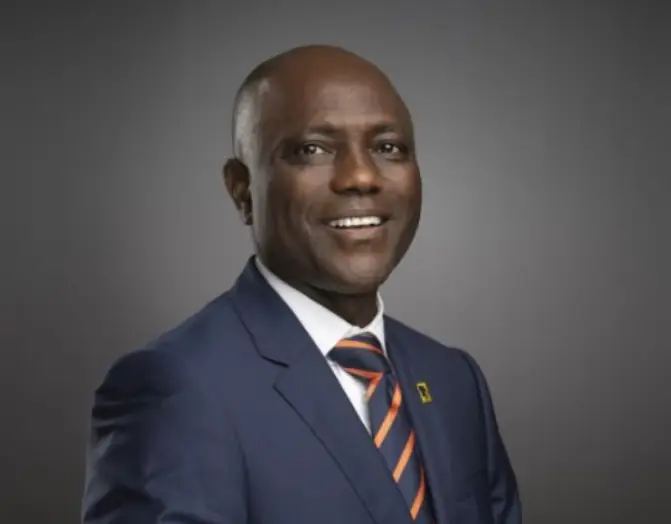
Olusegun Alebiosu has been appointed as the Acting Managing Director/Chief Executive Officer of First Bank of Nigeria Limited (FirstBank Group), effective April 2024.
Alebiosu steps into this pivotal role from his previous position as the Executive Director, Chief Risk Officer, and Executive Compliance Officer, a position he held since January 2022.
Alebiosu brings to the helm of FirstBank over 28 years of extensive experience in the banking and financial services industry. His expertise spans various domains including credit risk management, financial planning and control, corporate and commercial banking, agriculture financing, oil and gas, transportation, and project financing.
READ ALSO: JUST IN: Access Holdings Names New Acting CEO
Having embarked on his professional journey in 1991 with Oceanic Bank Plc. (now EcoBank Plc.), Alebiosu has held several notable positions in esteemed financial institutions.
Prior to joining FirstBank in 2016, he served as Chief Risk Officer at Coronation Merchant Bank Limited, Chief Credit Risk Officer at the African Development Bank Group, and Group Head of Credit Policy & Deputy Chief Credit Risk Officer at United Bank for Africa Plc.
Alebiosu’s academic credentials further enrich his professional profile. He is an alumnus of the Harvard School of Government and holds a Bachelor’s degree in Industrial Relations and Personnel Management. Additionally, he obtained a Master’s degree in International Law and Diplomacy from the University of Lagos, as well as a Master’s degree in Development Studies from the London School of Economics and Political Science.
READ ALSO: Meet Newly Appointed Union Bank CEO
A distinguished member of various professional bodies, including the Institute of Chartered Accountants (FCA), Nigeria Institute of Management (ANIM), and Chartered Institute of Bankers of Nigeria (CIBN), Alebiosu is renowned for his commitment to excellence and ethical practices in the banking sector.
Beyond his professional endeavors, Alebiosu is known for his passion for golf and adventure. He is happily married and a proud parent.
With Alebiosu’s appointment, FirstBank of Nigeria Limited anticipates continued growth and innovation under his leadership, reinforcing its position as a leading financial institution in Nigeria and beyond.
Business
CBN Gives New Directive On Lending In Real Estate
Published
1 week agoon
April 17, 2024By
Editor
The Central Bank of Nigeria, CBN, has released a new regulatory directive to enhance lending to the real sector of the Nigerian economy.
The directive, issued on April 17, 2024, with reference number BSD/DIR/PUB/LAB/017/005 and signed by the Acting Director of Banking Supervision, Adetona Adedeji, signifies a notable shift in the bank’s policy towards a more contractionary approach.
In line with the new measures, the CBN has reduced the loan-to-deposit ratio by 15 percentage points, down to 50 per cent.
This move aligns with the CBN’s current monetary tightening policies and reflects the increase in the Cash Reserve ratio rate for banks.
READ ALSO: JUST IN: CBN Gov Sacks Eight Directors, 32 Others
The LDR is a metric used to evaluate a bank’s liquidity by comparing its total loans to its total deposits over the same period, expressed as a percentage.
An excessively high ratio may indicate insufficient liquidity to meet unexpected fund requirements.
All Deposit Money Banks are now mandated to adhere to this revised LDR.
The CBN has stated that average daily figures will be utilised to gauge compliance with this directive.
Furthermore, while DMBs are encouraged to maintain robust risk management practices in their lending activities, the CBN has committed to continuous monitoring of adherence and will adjust the LDR as necessary based on market developments.
READ ALSO: JUST IN: CBN Increases Interest Rate To 24.75%
Adedeji has called on all banks to acknowledge these modifications and adjust their operations accordingly. He emphasised that this regulatory adjustment is anticipated to significantly influence the banking sector and the wider Nigerian economy.
The circular read in part, “Following a shift in the Bank’s policy stance towards a more contractionary approach, it is crucial to revise the loan-to-deposit ratio policy to conform with the CBN’s ongoing monetary tightening.
“Consequently, the CBN has decided to decrease the LDR by 15 percentage points to 50 per cent, proportionate to the rise in the CRR rate for banks.
“All DMBs must maintain this level, and it is advised that average daily figures will still be applied for compliance assessment.
“While DMBs are urged to sustain strong risk management practices concerning their lending operations, the CBN will persist in monitoring compliance, reviewing market developments, and making necessary adjustments to the LDR. Please be guided accordingly.”

Categories Of Jobs Under UK Skilled Work Visa With 48% Wage Increase [FULL LIST]

JUST IN: Protesters Storm APC Secretariat, Demand Ganduje’s Resignation

Three Electrocuted In Ogun Market
Trending

 Entertainment3 days ago
Entertainment3 days agoBridesmaids’ Dance At Wedding Causes Stir On Social Media [VIDEO/PHOTOS]

 Politics4 days ago
Politics4 days agoEdo Guber: Akoko-Edo PDP Leaders Meet In Igara, Describe Ighodalo, Ogie As ‘Perfect Match’

 Metro3 days ago
Metro3 days agoVIDEO: ‘UNN Lecturer’ Caught Pants Down With Married Student

 News5 days ago
News5 days agoFoundation Advocates Empowerment Of Women, Youth In Nigeria

 News5 days ago
News5 days agoJapa: Types Of US Visa Available To Nigerians, Other Foreigners

 News4 days ago
News4 days agoOutrage As Chinese Supermarket In Abuja Denies Nigerians Entry

 News3 days ago
News3 days agoIGP, Jonathan Disagree Over State Police

 Headline2 days ago
Headline2 days agoMeet 17-year-old Nigerian Who Won $3.5m Worth Of Scholarships From Harvard, 13 Other Foreign Universities

 News2 days ago
News2 days agoBREAKING: Dangote Further Crashes Diesel, Aviation Fuel Price

 Business4 days ago
Business4 days agoJUST IN: FirstBank Gets New MD/CEO
